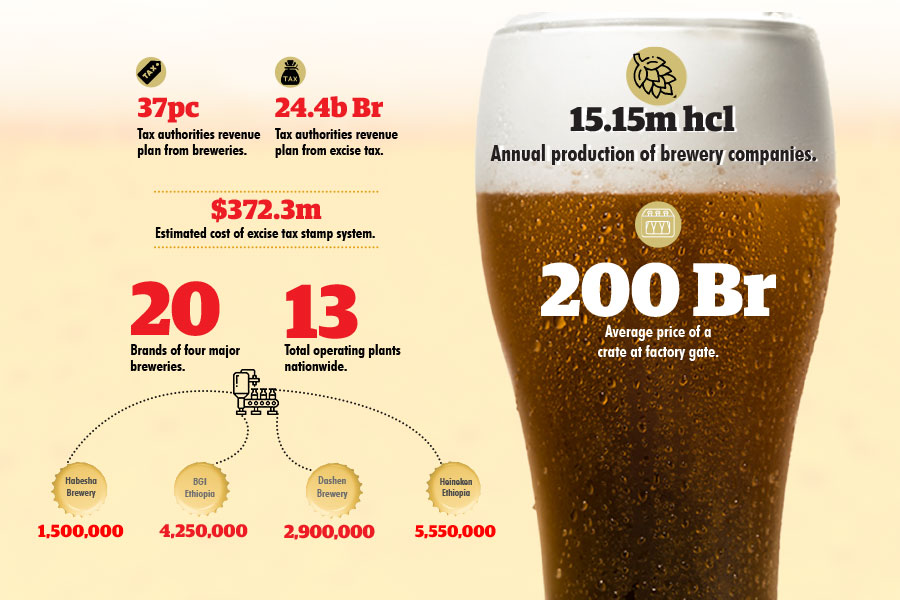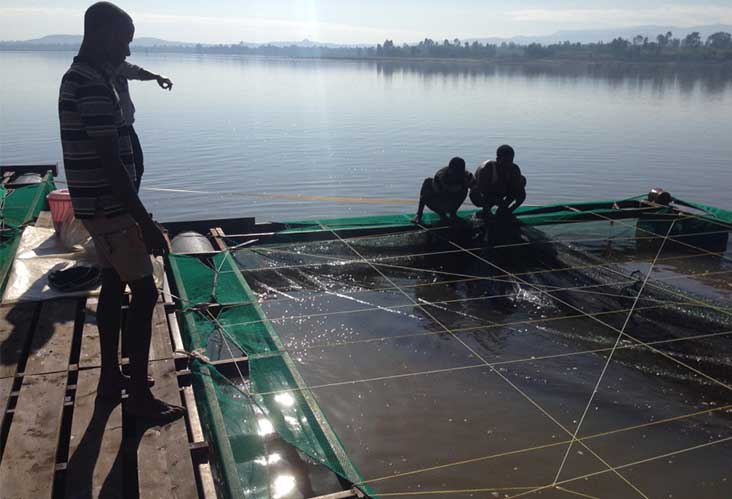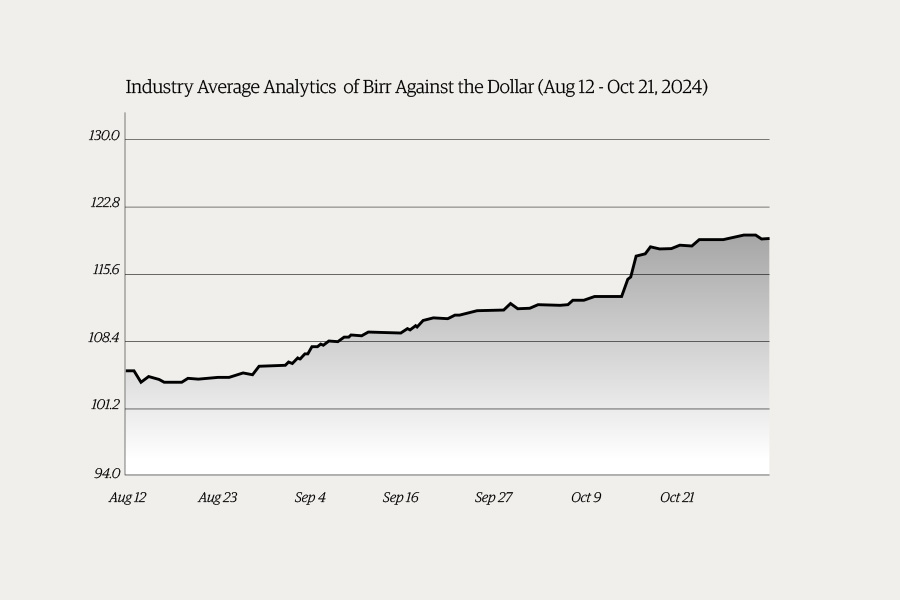
Featured | Sep 08,2024
A downturn in demand from the cement manufacturing sector has resulted in an unforeseen surplus of coal in Oromia Regional State, leaving miners with 125,000tns awaiting buyers. It has prompted the officials at the Oroma Mineral Development Authority to step in. They have been actively corresponding with the Ministry of Mines and cement manufacturers, pleading with them to procure their coal inputs within the regional state.
Abdulaziz Dawd (PhD), head of the Oromia President's Office secretariat, has issued a letter to cement manufacturers, requesting their assistance in establishing a market linkage with local miners, as part of the government's import substitution strategy.
According to Gari Tesfaye, a licensing department expert at the Authority, allocating foreign currency to cement manufacturers last year contradicted the import substitution strategy. While acknowledging quality issues, he believes that local suppliers should be capable of meeting the entire coal demand.
"Most of them entered the business to supply the factories," he said.
Former Minister of Mines Takele Uma, had plans to entirely replace coal imports for cement production with local supply, progressively increasing its use in factories. Gari said that miners have permanently repurposed their former farmlands to cater to the needs of the 10 cement manufacturers in the region. However, he observed that manufacturers prefer to purchase from other regional states, citing concerns over its poor quality.
He is concerned over the regional government's declining royalty revenues, as it has only managed to collect 37.6 million Br in the nine months of the fiscal year, falling short of the annual 176 million Br target, derived from the four percent collected on each ton of coal.
"They may have ulterior, perhaps political motives," said Gari.
The state-owned Ethiopian Petroleum Enterprise has procured 300,000tns of coal from abroad this year, serving as the sole entity mandated to import on behalf of cement manufacturers. The remainder of the 1.7 million tons demanded by the industry are supplied by domestic miners.
A study conducted by experts from the Geological Survey & Conformity Assessment Agency (GSCAA), which sampled coal from Oromia, South Western, Southern, and Benishangul Regional States, revealed that Ethiopian coal boasts a high energy content of 5,500 calories a unit. However, concerns persist within the cement industry on both the high impurity content and security issues surrounding its logistics.
One of the largest cement manufacturers in the country, Mugher Cement is found within the regional state, 90Km outside the capital. The state-owned enterprise, which produced approximately 5.6 million quintals of cement last year, obtained 246,506tns of coal from local suppliers and imported 64,925tns.
CEO Gezahegn Dechassa acknowledges that the majority of supply makes its way from the Southern Regional State due to better quality and fewer security concerns. However, the entire procurement process hinges on the quality and price of coal, with suppliers selected based solely on product type and energy content, according to Gezahegn.
"Whatever is mined not necessarily be procured by the factories," he said.
Ethiopia's estimated 600 million tons of coal deposits have failed to meet local demand since exploration began in the 1940s. Mining Minister Habtamu Tegegn has taken proactive steps to address this issue by engaging in extensive discussions with the CEOs of the 12 operational cement manufacturers over three months. The aim was to gather feedback on the national strategy to replace imports with high-quality local supply.
The Ministry remains steadfast in replacing coal imports with local supply. Some officials are scheduled to visit India in the coming weeks to gain insights into the coal industry.
According to Bisrat Kebede (PhD), director of the Mineral Industry Development Institute, regional mining bureaus have contributed to developing the strategy. He said that local coal deposits generally boast a higher calorie content but are compromised by poor technology.
"The strategy will address creating capable, technology-equipped companies and establishing sustainable market chains," he said.
The abundance of coal discovered through shallow surface-level digging is indicative of Ethiopia's substantial potential in the coal industry, according to Bisrat. However, the expert disagrees. According to Solomon Mewa, who has worked for the Assessment Agency for three decades, low-quality coal due to the high likelihood of impurities is mixed into the mineral when extracted from surface-level explorations.
"There is a serious gap in industry knowledge," Solomon told Fortune.
For Solomon shallow digging practices are the primary impediments to the coal industry's growth. He believes the primitive mining techniques pose a risk of environmental pollution and will inevitably cause a decline in demand. He recommends an introduction of technology before major policy changes.
Out of the 378 small-scale miners holding licenses nationwide, only 40 are actively engaged in mining operations, amidst the suspension of new permits over the past two months.
Abdi Abdurahman Nur, leader of a coal miners' association comprising 117 members, expresses concern over the livelihoods jeopardised by the decline in demand. According to him, they have incurred major excavator rental costs to improve the quality of the coal. Despite obtaining a five-year concessional plot spanning 5.6hct from the regional state, Abdi and his partners in the Jimma zone have only sold 40tns out of the 30,000tns mined.
"We won't be able to provide for our families at this rate," he said.
PUBLISHED ON
May 11,2024 [ VOL
25 , NO
1254]

Featured | Sep 08,2024

Commentaries | Sep 10,2023

Commentaries | Sep 10,2023

Fortune News | Jul 28,2024

Fortune News | Jul 15,2023

Fortune News | Sep 15,2025

Fortune News | Aug 03,2019

Featured | Jan 07,2024

Money Market Watch | Nov 03,2024

Commentaries | Jan 16,2021

Dec 22 , 2024 . By TIZITA SHEWAFERAW
Charged with transforming colossal state-owned enterprises into modern and competitiv...

Aug 18 , 2024 . By AKSAH ITALO
Although predictable Yonas Zerihun's job in the ride-hailing service is not immune to...

Jul 28 , 2024 . By TIZITA SHEWAFERAW
Unhabitual, perhaps too many, Samuel Gebreyohannes, 38, used to occasionally enjoy a couple of beers at breakfast. However, he recently swit...

Jul 13 , 2024 . By AKSAH ITALO
Investors who rely on tractors, trucks, and field vehicles for commuting, transporting commodities, and f...

Sep 13 , 2025
At its launch in Nairobi two years ago, the Africa Climate Summit was billed as the f...

Sep 6 , 2025
The dawn of a new year is more than a simple turning of the calendar. It is a moment...

Aug 30 , 2025
For Germans, Otto von Bismarck is first remembered as the architect of a unified nati...

Aug 23 , 2025
Banks have a new obsession. After decades chasing deposits and, more recently, digita...